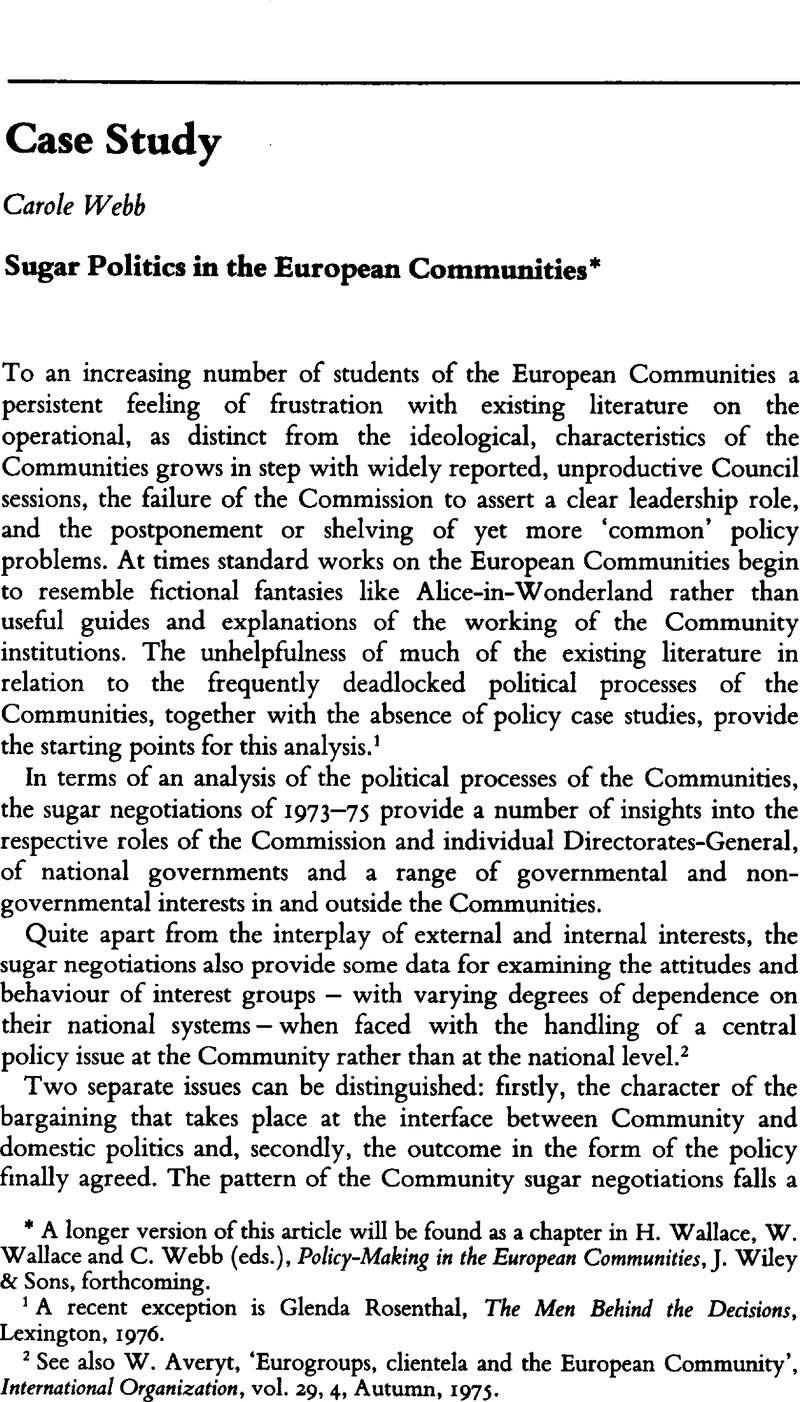Published online by Cambridge University Press: 28 March 2014

1 All references will be given parenthetically; works by Oakeshott cited, and the abbreviations used for them, are as follows: On Human Conduct, Oxford: Clarendon Press, 1975, cited as OHC, Rationalism in Politics and Other Essays, New York: Basic Books, 1962; cited as RinP; Experience and Its Modes, Cambridge: Cambridge University Press, 1933, cited as EalM. Oakeshott’s several essays on Hobbes have now been collected in a volume entitled Hobbes on Civil Association, Oxford: Basil Blackwell, 1975, not cited here.
1 A recent exception is Glenda Rosenthal, The Men Behind the Decisions, Lexington, 1976.
2 See also Averyt, W., ‘Eurogroups, clientela and the European Community’, International Organization, vol. 29, 4, Autumn, 1975.CrossRefGoogle Scholar
3 Rosenthal, op. cit.
4 For a fuller discussion of the international sugar market see Harris, S. and Smith, I., World Sugar Markets in a State of Flux, Agricultural Trade Papers, no. 4, Trade Policy Research Centre, 1973.Google Scholar
5 See Tracy, M., Agriculture in Western Europe, J. Cape, London, 1964.Google Scholar
6 For example, apart from the CSA, the USSR‐Cuba sugar agreement and the US Sugar Act.
7 For a fuller discussion of the interim sugar policy see Smith, I., The European Community and the World Sugar Crisis, Trade Policy Research Centre, Staff Paper no. 7, 1974.Google Scholar
8 See, for example, Report of the Committee on Agriculture of the European Parliament, 3 39/74, 11 November 1974.
9 The access accorded to the cane exports of the Congo and Madagascar to the French market at the Communities’ guaranteed internal price ceased on the coming into effect of the Common Sugar Policy in 1968.
10 Memorandum on the Future Sugar Policy of the Community, Com (73) 1177, July 1973.
11 Jamaica and Guyana were the major defaulters on their CSA quotas in 1974.
12 CIBE had earlier, in March, proposed a CSEA/CIBE Discussion Club to explore common interests.
13 The Community’s Future Sugar Policy. Sec (74) 2784. 9. July 1974.
14 The Common Organisation of the Sugar Market, Regulation (EEC) 3330/74; Allocation and Alteration of Basic Quotas of Sugar, Regulation (EEC) 3331/74, both December 1974.
15 For a critical evaluation of the Lomé Sugar Protocol see Harris, S. and Hagelberg, G., ‘Effects of the Lomé Convention on the World’s Cane‐Sugar Producers’, ODI Review, No. 2. 1975.Google Scholar